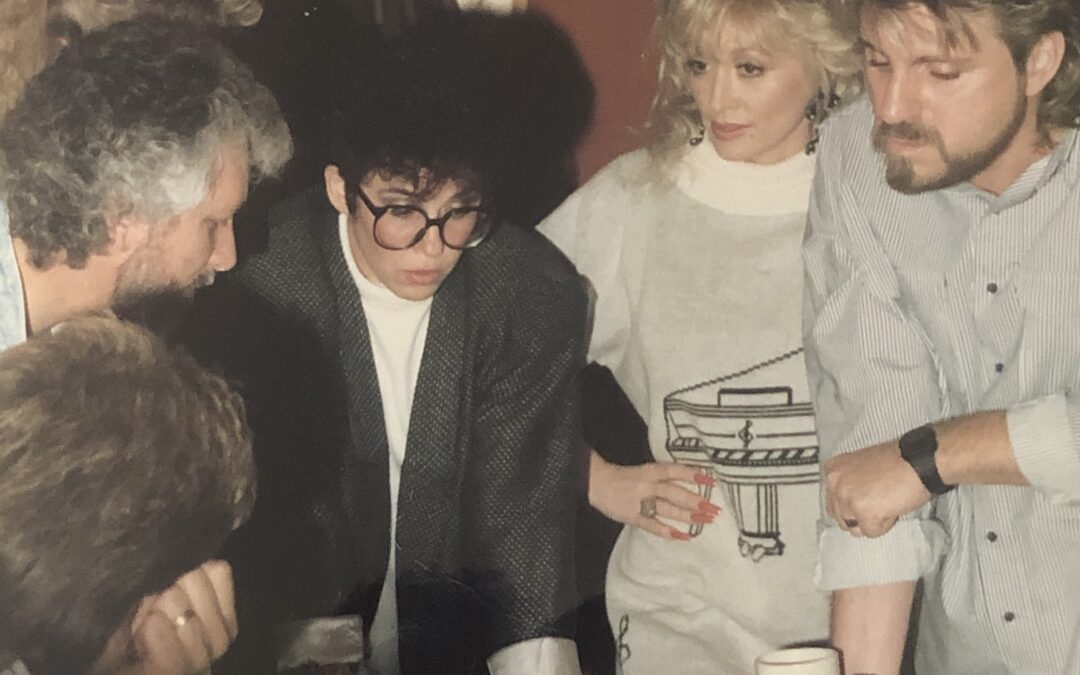By Amy Green
Looking back across a half century, Lisa Silver describes her success in the music business as a combination of hard work and good fortune. But it is clear that the singer, songwriter and fiddle player’s success was built on very hard work and an unwavering focus on getting everything just right.
An easy laugh and a humble disposition leave many who think they know her well completely unaware that she is a Grammy-nominated songwriter with a No. 1country hit. And still others are surprised to see the stunning list of people with whom Silver has sung as a background vocalist. In fact, riding in a car with the radio on is a treat of listening to her sing along with song after song with a comment, “Oh, I think I sang on that one.” There have been so many of those sessions that she honestly doesn’t remember.
Silver began her music career in school in Detroit, Michigan, at the age of eight where she learned to play violin. Encouraged by her father, a high school choral director, she pursued Junior Symphony, summer music camps and found any opportunity to play. Her brother introduced her to folk, jazz and rock. Silver followed her love of classical music, but also loved the Motown sound of Detroit where her father was the high school music teacher for the likes of Martha Reeves of Martha and the Vandellas and Mary Wilson of the Supremes.
In 1972, after trying her hand as a strolling musician in a restaurant and as the “fiddler” in a local Detroit country band, Silver and two of her band partners decided to move to Nashville.
Nashville’s bustling studio business on Music Row was a mecca for the trio. Each made their own success on arriving with one who is now known as Too Slim of Riders in the Sky fame and the other finding work in publishing. Silver found herself invited to play fiddle for a demo for the latter. The pedal steel player on the session was Bobbie Seymour who introduced her to Buddy Spicher, who invited her to try to ”keep up” on a session as a twin fiddle player on a different session. From there, Silver found herself in demand as a studio musician.
Silver was careful to let everyone know that she wanted also to sing and eventually she was given the opportunity to sing backup vocals.
By 1976, Silver was playing fiddle with Chet Atkins on “The Night Atlanta Burned.” She performed the title song on the Jerry Reed pilot TV show for The Nashville Network and spent days and nights rushing from one studio session to the next.
A chance studio session put Silver with Diane (Tidwell) Vanette and Sheri (Kramer) Huffman as backup singers on a soulful album. The trio clicked, were eventually dubbed “The Cherry Sisters” and became some of the most sought-after studio singers in Music City. Following their dreams, they taught themselves some swanky dance moves, borrowed some clothes and went on the road as back-up singers for artists such as Jerry Reed, The Righteous Brothers and Charlie Rich. The Cherry Sisters produced an album of their own and continued to work as a team through the 1990s.
A decade later, Silver added “accomplished songwriter” to her list of achievements. Now a known artist in Nashville, she was collaborating on writing projects with the likes of Kenny Loggins and Don Schlitz. In the mid-80s they penned a song, “Forty Hour Week” that rose to number one on the country charts when it was recorded by Alabama, and was nominated for “Best Song” at the 1986 Grammy Awards.
In that same timeframe, the team of Lisa Silver and Kenny Loggins wrote “Maggie’s Dream” which became a hit for Don Williams.
Silver met and married Clayton Ivey, a Musician Hall of Famer and a pianist/keyboard musician who was a part of the Muscle Shoals studio musicians.
Life changed dramatically for Silver with the adoption of her daughter, Olivia. Her interest in children’s music grew and she began to write music for children. Her interest in band travel waned and she found work as a vocalist for Looney Tunes cartoons, writing theme songs and developing her cartoon voices on projects for Looney Tunes Baby, Scooby Doo and Krypto.
Sprinkled in between were a series of opportunities for television and movie soundtracks and commercials.
But it was an opportunity that opened unexpectedly in Nashville in 2002 that created a 20-year career of writing liturgical music and allowed Silver control over the writing, direction and production of her songwriting, her vocals and her work as a musician.
Silver became the cantorial soloist at Congregation Micah. Over the course of her tenure, she developed the adult choir, created a bouncy Kids Choir and wrote the music she sang and that the choirs sang. She was able to develop music for the preschool program, the community’s day school and even created a “garage band” of adult members. Hiring studio musicians to fill in instruments created a musical experience that the Congregation came to love and expect in every service and life cycle event.
Some artists talk about getting their start in music in their religious homes. For Silver, she came home to her religious roots bringing her talent from a long and successful career as a country, pop, classical, jazz and Motown singer, songwriter and musician.
Silver is retiring from her role as a cantorial soloist in June of 2022. Her next success will come again on her own terms, as she releases the music she has written for Congregation Micah and for children. She plans to spend some time working on jazz sets with her husband and keeps finding things she wants to write songs about. Oh, and she is already teaching a songwriting class for a high school. Retirement? It’s more than a “Forty Hour Week.”
To download her music audios and songsheets, visit lisasilversong.com.

